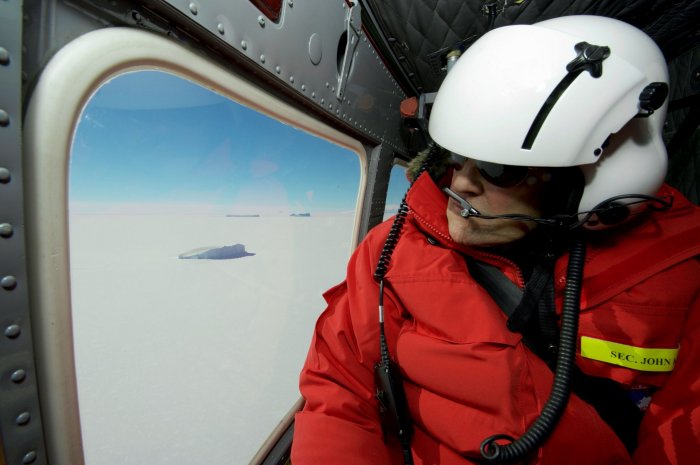Nov. 7 (UPI) — A COVID-19 outbreak at an Antarctic research station has caused the National Science Foundation to halt travel to the world’s southernmost continent.
The NSF reports more than 70 COVID-19 cases at the McMurdo station, the largest station on the continent. The travel stoppage will last at least the next two weeks.
“The U.S. National Science Foundation’s priority is always the health and safety of our communities while ensuring the overall science mission can be achieved,” the NSF said in a statement on its website.
“Management is moving to lower the density of the population to reduce the possibility of transmission. As plans are confirmed and due to the quickly changing situation, NSF will be posting updates.”
Essential travel, such as travel for health and safety reasons, will still be allowed.
McMurdo station hosts about 1,000 researchers, focusing on aeronomy, astrophysics and geospace sciences, biology and ecosystems, geology and geophysics, glaciology, geomorphology, ice cores, and ocean and climate systems.
Antarctica was the last continent to report a positive case of COVID-19, not doing so until December 2020. Its natural isolation from the rest of the world is the chief reason it was able to avoid the direct effects of the pandemic, McMurdo station manager Erin Heard said.
“NSF and other countries in the Council of Managers of National Antarctic Programs acted quickly to stop bringing people to the continent when the outbreak became serious,” he said.
There were 36 positive cases reported at the General Bernardo O’Higgins Riquelme research base, the first outbreak on the continent. Twenty-six of the cases were among Chilean army personnel and 10 were civilians.
Ten-percent of the population deployed on Antarctica is currently testing positive for COVID-19. The NSF advises researchers on McMurdo to wear KN95 masks at all times. A total of 98 cases have been confirmed among 993 people stationed on McMurdo. Sixty-four cases are still active.
.stph_caption .title{color: #000000;}
